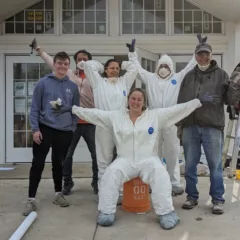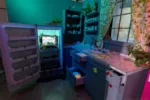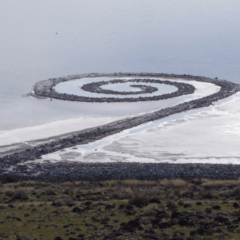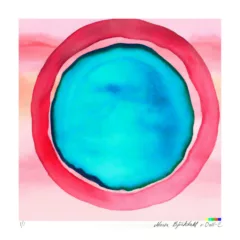
Sarah Carranza asks…
“Do you have any advice for writing proposals? Or balancing proposal writing with making art?”
Hi Sarah,
I’m afraid that NO I do not have advice for writing proposals or balancing proposal writing with making art. The key to doing all this is ambition, which is something I lack. Let’s pretend though that I am an ambitious artist and go from there.
Do you like sucking up to people?
Self-interest is key when writing proposals. People mostly like to read about themselves and really are not that at all interested in you or your art. I mean think about why you even have to write a proposal. It’s because no one’s going to come to you. So, when writing a gallery or grant organization, discuss what you like about them. Have specific examples describing how wonderful they are, and from there, weave your art practice into that narrative. You like sucking up to people? Sucking up is definitely in the top ten rule book for being ambitious. Invite them to your studio and mention snacks. Ask if they like alcohol or prefer coffee. Peanuts or cashews. I have learned from the past, studio visits really win the curators over. Collectors? Lol I’ve never met one.
Sarah, I am not joking around here entirely. This is solid advice. I’ve been involved in gallery spaces and have read a lot of proposals – the ones that make the cut always specifically compliment the organization and offer snacks at studio visits.
Grant organizations will tout advice like “be yourself” in your proposals – FALSE. You want that grant? You should know what they are looking for, and if you have the money, pay someone to write the grant for you because truly artists cannot separate themselves from their art or even write about their art when it comes to grant writing specifically. Extra points if you have a smart boyfriend, girlfriend, friend, partner or Mom or Dad that you don’t have to pay.
Delegate proposal writing to a professional if you can afford it
Actually all around if you can pay someone to write proposals and grants that would be key, essentially. You can’t entirely trust free help. Tell the person writing your grant proposal for you who you need to be for the org : a feminist, a political activist, a social practice-ner, community-uh-person…and so on. If you’re paying the right person, they will probably know better than you.
Now onto the balancing proposal writing with making art bs. It’s impossible. I’m pretty sure that society at large hates art. I mean where else in any other profession does it require you to do everything and not make money? Nowhere. Motherhood? Yeah, exactly – why I’ll never have kids. The reason wealthy artists predominantly take up the “successful” role within in the art world isn’t because they can afford the best materials, go to all the fancy parties, travel, know other rich people, live in NYC – it’s because they got the money to pay the proposal writers! Wow. We really blew the lid off something here. Ok I might be coming off a bit chip on the shoulder-y here. That’s classist. It’s because successful artists are ambitious. *side eyed emoji*
Have fun in the studio but add time for (not fun) proposal writing
Making art is fun, writing proposals is not. You need to set aside not fun time for writing proposals. It’s best to frame this as a consistent studio practice for yourself. Put writing time in your calendar – best to put it in your phone or on your desktop so you get a little nagging reminder when it’s time to sit down and write. Research where your art fits in. Don’t waste your time sending proposals to galleries you know your work wouldn’t fit. Where do you know people? Send proposals there first. Banter to the space you are writing to, make just a quick intro in email or opening paragraph in the proposal. Sounds like nepotism. It is. It’s true. It’s how the art world functions, which is exactly why it is further behind than even television when it comes to diversity. Don’t @ me.
Make a list of the galleries, grants, etc. that you fit for your art. Don’t waste your time writing several different proposals when it comes to the show you want to do or the art you need money to make. Believe it or not, applications across the board are pretty much the same. What kind of art do you make? Why is your art relevant? And so on. Part of making this a consistent, scheduled part of your art practice is honing it in – making it so you can drop the most “genius” “original” line about your artwork in under 60 seconds, for that great opportunity that comes your way and has a deadline tomorrow. It happens.
Plot out a year’s worth of proposal deadlines
Notice I said, er, wrote part of your practice. Come to terms with the fact that writing proposals and applications is part of your art practice. Separating it in your mind only makes it more daunting. Eventually, by regularly practicing writing, I’ve heard that you’ll actually begin to enjoy writing. I hate to mention Ayn Rand, like ever, but you should audiobook “The Art of Fiction” next time you’re in the studio or cleaning your bathroom. Books about writing to get good at writing, even fiction, can be helpful for writing artists statements because they discuss writing practice. Tbh I meant to read, er, listen to Henry James’ “The Art of Fiction” and accidentally downloaded Ayn Rand’s. I’m actually not that big of a fan of either.
Back to calendar. Put all the grant deadlines you want to apply to in your calendar. Give yourself a couple days reminder as well. For other proposals without deadlines, set priority deadlines, like mentioned before, where you’re most likely to get your proposal considered. Sit down and deadline a whole year.
Once you get past this phase, Padawan, you will be able to quickly apply to places and spend more fun time making art. All artists have day jobs. You need to be in your studio making art imho at least 12 to 20 hours a week. I’m sure most people think that’s unrealistic – it is – but that includes reading, writing proposals, going out to see art and then finally and most importantly making it. It’d be awesome not to have a day job – imagine all the “making it” hours you’d have for your studio assistants to make your artwork! In the end, Sarah, I’m afraid being pragmatic is the best way to fit proposal writing into your art practice. It’s why I’m such a failure.
Best,
Beth I Have “Clever Name at End of Advice Column” Writers Block
Glossary
bs stands for bullshit.
Imho – In my humble opinion
Don’t @ me. – Expression: Similar to “No offence” or “Not for Nothing”, “Don’t @ me” literally means don’t mention my name in a tweet, comment, etc., but is usually used in pretext of something predicted by the presenter to be offensive to a social audience of a specific type.
Padawan – A Padawan, or Jedi apprentice, is a trainee who is apprenticed to a Jedi Knight or Master. Padawans receive one-on-one instruction in the ways of the Jedi. When a Padawan’s training is completed, he must pass the Trials to become a Jedi Knight. Padawan means learner in Sanskrit.
Tbh – To be honest – Connotation open to interpretation, case by case – business insider
Artblog interviewed William Powhida, the artist behind “Auction Proposal” at the top of this post! Check out the 2010 podcast interview (13 minutes of great talk) here
Ask Artblog is the essential advice column for all your art life questions. Beth Heinly and Dave Kyu, our Advisors-In-Chief, offer solid advice from life experience and mature opinions on issues. Have a question for Dave or Beth? Email ask@theartblog.org. Or click here to submit a Google form with your questions. All names kept anonymous.









